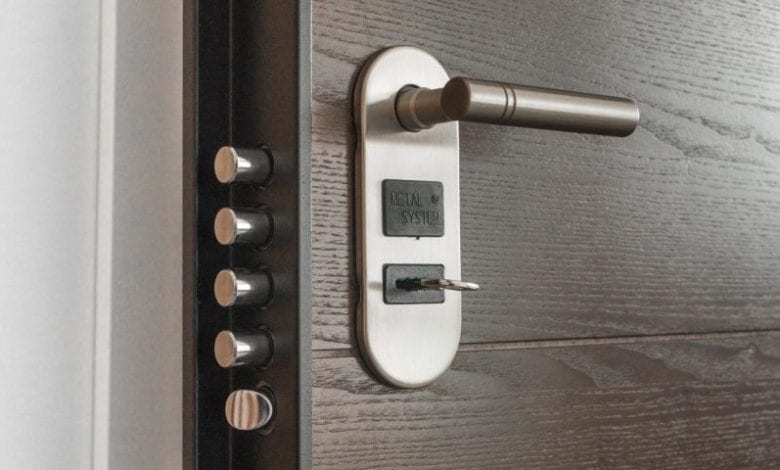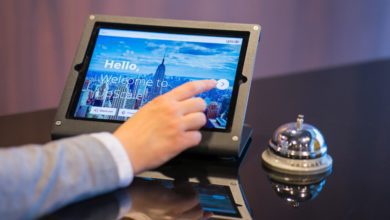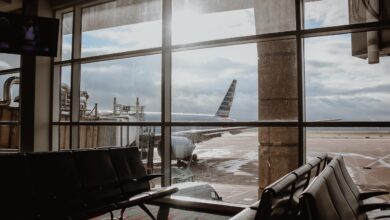Top tips for hotel security

The majority of hotels take a ‘belt and braces’ approach when it comes to safety and security; as hotels are usually a mixture of domestic, commercial and public buildings, it is advisable to make sure that all bases are covered.
The top priority is of course to ensure the safety of guests, and the MLA recommends that hotels meet the most up-to-date fire and building regulations, and follow the guidelines designated for Houses of Multiple Occupancy (HMOs).
Safety and escape
These dictate that the property has suitable escape routes – such as an external fire escapes or internal stairs – that can resist fire, smoke and fumes long enough for the occupants to leave the building. However, in any property the owner has a responsibility to ensure suitable, clear emergency exits exist, which are appropriate to the size of a building and the number of occupants.
Emergency exit legislation also requires doors to open from the inside without the use of a key, using a single action – a method known as keyless egress – as in most cases hotel rooms will have only one door and therefore one exit route. These systems need to be fitted to individual doors on any emergency exit route as well as common entrance doors.
Knowing who has access to the hotel building is also hugely important – it’s worth taking the time to select the most suitable access control system for your property. Apart from guests continually coming and going, you will also have staff, suppliers and maintenance personnel passing through the hotel.
There are options available such as standard locks and keys, patented keys (where keys can’t be copied without proof of ownership) and master key systems (where one key opens all locks in a set while other keys open individual or selected locks).
There are also methods of electronic access such as digital locks, key fobs, swipe cards, keypads and video entry systems. However, it is important to understand that if an electronic access system is ‘fail safe’, should the power go off then the doors will unlock. It is therefore advisable that any final exit security systems feature a mechanical element.
It’s vital that the emergency exit doors have the relevant panic hardware fitted too. Failure to comply could lead to the responsible person being subject to legal action so it’s definitely worth getting professional advice. Hotel managers should take the time to find out about MLA-approved locksmiths in their area and to purchase any security hardware from a third-party product testing house.
With that said, don’t forget to establish who is the responsible person or small team for each shift – the appointed staff member should be in charge of monitoring all matters relating to safety and security.
General security
In terms of general security measures, these should be developed from the outside in. Hotels with valuables such as televisions in every room and money stored in room safes, can be a prime target for thieves.
Installing a CCTV system on the premises can act as an excellent deterrent and early warning system, as well as an extremely useful tool for identifying any intruders. Even something as simple as a sign stating that you have CCTV can discourage would-be burglars.
It is also worth investing in products such as dusk-till-dawn security lights, as they can provide you with an extra level of security, especially in the winter months. Remember to keep on top of your general maintenance too – what may initially appear as a cosmetic flaw could an invitation for burglars. Keep an eye out for shabby window and door frames, cracked windows, rusted chains, gates and locks, and ask your locksmith to perform a general security assessment twice a year.
In addition, if the hotel has a designated car park then you should consider installing products such as rising bollards and electronic gates to reduce the risk of cars being stolen or damaged.
With regard to personnel, investing in 24-hour security staff is advisable, as is training all staff on the importance of security and what to look for. This is a relatively cost-effective and simple measure to take.
Security is something that needs to be implemented from the ground up and tailored to the specific requirements of any given hotel. There is not a ‘one size fits all’ security package – each hotel is different and requires its own individual security measures, and will also require the relevant safety legislation to be taken into account.
By taking this approach from the outset, hotel managers will not only be protecting the property and its guests and staff from potential crime whilst ensuring their safety in an emergency, but also reducing the likelihood of extra security having to be installed at a later date – and at an extra cost.
By Steffan George, development director of the Master Locksmiths Association (MLA). The Master Locksmiths Association (MLA) was established over 50 years ago to set and promote standards of conduct, practice and materials within locksmithing. The MLA, which is a not-for-profit organisation is recognised as the authoritative body for locksmithing by the police, home office and other leading organisations such as the British Standards Institute.









